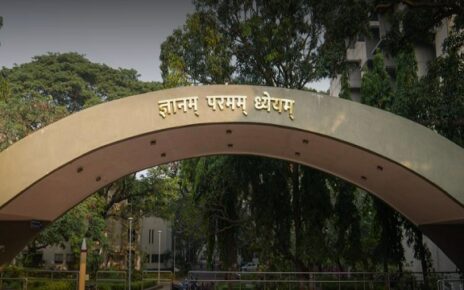The CSIR-National Metallurgical Laboratory (CSIR-NML) stands as a testament to India’s scientific ambition and technological prowess. Established on November 21, 1946, and formally inaugurated on November 26, 1950, the laboratory was a visionary project conceived during the early years of independent India. Pandit Jawaharlal Nehru, who inaugurated the facility, described it as a symbol of hope and faith in the nation’s future.
Foundational Vision
The laboratory was a key component of Sir Shanti Swaroop Bhatnagar’s ambitious plan to create a network of research institutions that would drive India’s scientific and technological development. Located in Jamshedpur, Jharkhand, CSIR-NML has been at the forefront of metallurgical research and industrial innovation for over seven decades.
Comprehensive Research Domains
CSIR-NML’s research portfolio spans a wide range of critical areas:
- Extractive Metallurgy
- Mineral Processing and Beneficiation
- Alloy Development
- Materials Science and Engineering
- Corrosion Studies
- Surface Engineering
- Sustainable Metals Production
- Advanced Materials Research
RECRUITMENT RESULT AT CSIR-NML
Significant Contributions
The laboratory has played a pivotal role in India’s industrial development, making notable contributions in:
- Mineral processing technologies
- Iron and steel manufacturing
- Ferroalloy production
- Non-ferrous metal extraction
- Advanced material development
Unique Facilities and Capabilities
Creep Testing Facility
One of the laboratory’s most notable achievements is its creep testing facility. Established in the early 1970s, it was once the largest in Asia and continues to rank as the second-largest creep testing laboratory on the continent. This facility is crucial for studying material deformation under long-term stress and temperature conditions.
Research and Development Focus
Key Research Areas
- Mineral Processing: Developing efficient techniques for mineral beneficiation and agglomeration.
- Metallurgy: Advancing ferrous and non-ferrous metallurgical processes.
- Materials Engineering: Creating innovative materials with enhanced properties.
- Environmental Conservation: Focusing on sustainable and cleaner metal production methods.
Technological Innovation
CSIR-NML has been instrumental in:
- Developing import-substitution technologies
- Creating advanced alloys
- Improving industrial processes
- Supporting India’s technological self-reliance
Collaborative Efforts
The laboratory collaborates with:
- Indian industries
- Academic institutions
- International research organizations
- Government departments
Impact and Achievements
Industrial Support
CSIR-NML has been crucial in:
- Solving complex metallurgical challenges
- Providing technical consultancy
- Developing indigenous technologies
- Supporting Indian manufacturing sectors
Research Publications and Patents
The laboratory has an extensive record of:
- Peer-reviewed scientific publications
- Innovative patents
- Technology transfer to industries
Future Directions
CSIR-NML continues to focus on:
- Advanced materials research
- Sustainable manufacturing technologies
- Artificial intelligence in metallurgy
- Green metallurgical processes
Organizational Structure
As a part of the Council of Scientific and Industrial Research (CSIR), the laboratory maintains high standards of scientific research and innovation. It operates under the Ministry of Science and Technology, Government of India.
The CSIR-National Metallurgical Laboratory (CSIR-NML) Recruitment Results
Click the following link to the see latest recruitment results at The CSIR-National Metallurgical Laboratory (CSIR-NML)
CAREER LIST: https://nml.res.in/permanent-career-lists


